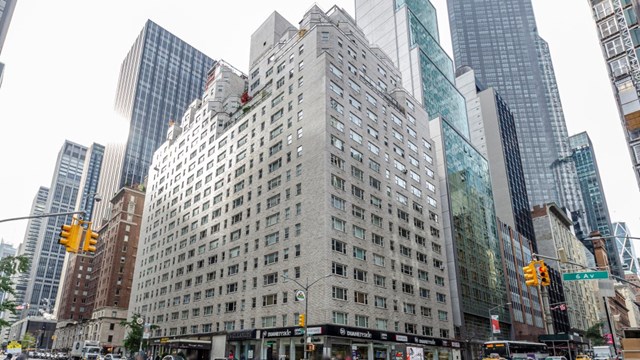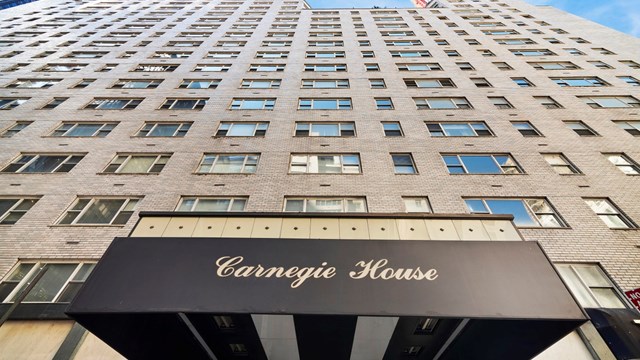While there's certainly no shortage of affluent co-op and condo buildings in New York City, it's a fact that a significant proportion of buildings are home to residents of more modest means--buildings for whom large capital improvement projects, emergency repairs, and major maintenance increases may constitute a significant financial hardship. For those buildings, price is definitely an object, and oftentimes board members and managing agents are hard-pressed to come up with creative ways to increase revenue. For those willing to do their homework and get creative, however, there are many methods by which middle- and lower-income buildings can increase their cash flow, build up their reserve fund, and stay solvent, no matter what the economic climate.
Before sweeping changes are made to a building's policies or practices, it's important to know why a co-op or condo is teetering toward the red; is it because the funds just aren't there, or is it because the funds that are there aren't being allocated and spent properly?
According to Patrick Niland of mortgage brokerage First Funding of New York LLC, "A first step would be to determine whether a budgetary imbalance is due to a permanent shift in the co-op's finances, or just a temporary or onetime occurrence. Since the origin of a problem often involves its timing, a solution sometimes can be found there as well."
Many boards understand this and move quickly to close the gaps in their budget by simply levying a special assessment or increasing maintenance. While such moves may be part of the ultimate solution, neither should be imposed without careful consideration of their long-term ramifications, says Niland--particularly in lower- or middle-income buildings with many families and seniors on fixed incomes for whom a large assessment may spell serious financial crisis. Occasional assessments are unavoidable, but a pattern of chronic, mounting assessments not only puts the screws on residents, but often implies that a building is poorly run. That in turn can compound the problem by making an already-strapped building a tougher sell for prospective owners.
What approach a building takes to solving a money-crunch depends very much on the nature of the building and of the financial problem at hand. A building with lower-income residents that has been struggling for years to make ends meet is unlikely to suddenly find itself flush with cash, and must therefore look to the long-term stability and solvency of the community. On the other hand, if it's a question of repairing a leaky roof with the rainy season on the way and the ink still drying on the check for a new boiler, some workable quick-fix options do exist.
According to Niland, quick cash can be generated by offering a discount to shareholders who prepay several month's maintenance all at once. Not everyone has the resources to do such a thing, particularly in lower-income buildings, but if it's a relatively small amount that needs to be raised for a one-time project, getting what amounts to a cash advance from residents can sometimes work. Of course, it's also possible that your building may simply have to defer or put off certain capital projects, or stage them over a longer period of time to avoid major capital outlay in tight times. (It should also be pointed out that nasty surprises are less likely to crop up if a building is vigilant about performing reserve studies and stays on top of maintenance issues, lest they develop into full-blown, expensive emergencies.)
Jeffrey Bookman, principal of Somerset Financial Group in Great Neck, says that the number-one source of additional revenue for many buildings today lies in the generation of additional fees. Condos in particular can pass an administrative fee on sublets that can become a small-but-steady income stream. "If a condo board charges $500 a year per sublet in a 300-unit complex with sub-tenants in 15 or 20 percent of the units being sublet--say 50 units, for example--that's $25,000 going back to the building," says Bookman.
Niland agrees, adding that in addition to sublet charges, buildings can adopt pet premiums, increased parking fees, move-in/move-out fees, late payment penalties, and fines for house rule violations. "These can each contribute small but meaningful amounts to a building's coffers," he says.
Some of the other avenues for strapped co-ops and condos to consider go beyond just enforcing fines and enacting fees to include more radical options--such as turning common areas into revenue generators, like storage facilities or professional spaces.
"More aggressive buildings have renegotiated their laundry room contracts and installed vending machines in the basement or mailroom," says Niland. "Still others have converted idle cellar space into cash-generating storage rooms and rent out bins of various sizes and prices."
"Investigate means of generating ancillary revenue," says Stuart Halper, an attorney specializing in residential real estate law and a principal with Impact Real Estate Management, Inc. in Manhattan. "Co-ops and condos that don't have storage lockers, bicycle racks, on-premises gyms or fitness clubs, social rooms, or similar revenue-generators can investigate the viability of installing one or more, or can consider raising the fees charged for their use."
Other radical ideas include moves like renting a portion of a large lobby to a local dry cleaner as a satellite location--which can increase cash flow and serve as a welcome amenity for residents. "Boards can even look into renting the building lobby to production studios for use as a scene location," says Halper.
"A building could also bring some professional space into its basement areas and convert that into money-making space," says Bookman, who also brings up an idea used by many buildings in the city to raise revenues: renting exterior wall space for signage, or roof space for cellular antennae.
Such creative approaches aren't options for every building and can involve quite a bit of planning and strategy. Not every co-op or condo wants to emblazon their exterior with advertising collateral, for example--and not every building is the right height or in the right area to be a viable cellular antenna host. For those willing to entertain the idea, however, the rewards can pay off in thousands of dollars a month.
Another way for smaller and lower-income buildings to beef up the bottom line is to examine their banking practices and use their relationship with their bankers as a tool to improve their financial picture.
"Don't overlook your banking relationships," says Niland. "Determine the average balance in each of your co-op's accounts. The bank is using these balances to make more money for itself--what benefits does the co-op get in return? If you ask that question in the right way, the bank might waive or reduce some of its charges, or it might provide additional services at no charge."
It also pays to evaluate the performance of your building's reserve fund on a regular basis, says Niland. "A reserve fund of $100,000 generates an extra $100 per year for every tenth of a percent increase in yield. $100 may not seem like much, but to paraphrase a famous congressmen, a hundred here and a hundred there and pretty soon, you have real money."
Some buildings might also consider self-management as another way to cut costs and increase available revenue--though it's not for everybody. While operating without a professional property manager is certainly possible and does save money that would otherwise go to management fees, it requires board members to be twice as savvy and on-top-of-it--not to mention willing to interact much more closely with shareholders and handle their concerns and issues one-on-one.
Obviously, says Niland, all of these measures--both minor and radical--could affect a building's future operations or cash flow, so none of them should be enacted without consulting the co-op's managing agent, accountant and other professional advisors first, along with putting matters before shareholders when appropriate.
Although shareholders are not directly responsible for decisions affecting the financial wellbeing of their building, it is up to them to elect boards, and the board's decisions ultimately affect them the most. Sometimes, those decisions are unpopular, but necessary.
Sometimes, despite a board/management team's creativity and best intentions, maintenance increases and assessments are unavoidable.
"Raising maintenance or common charges and/or levying assessments is rarely a popular move," says Halper. "But sometimes, there may simply be no other way for a co-op or a condo to generate the monies necessary to maintain operations. When an increase and/or assessment is required, the board must be sensitive to the shareholders and unit owners and inform them directly and candidly about the reasons for the increase or assessment and how the funds are going to be used."
If a board is contemplating a certain course of action, a good, conscientious group of directors will communicate their intentions and thoughts on the matter to management and shareholder/owners alike. Regardless of a building's financial status, communication is a key component to long-term stability and solvency. Ultimately, says Bookman, "It's the board's decision to do what's best for the building."







Leave a Comment